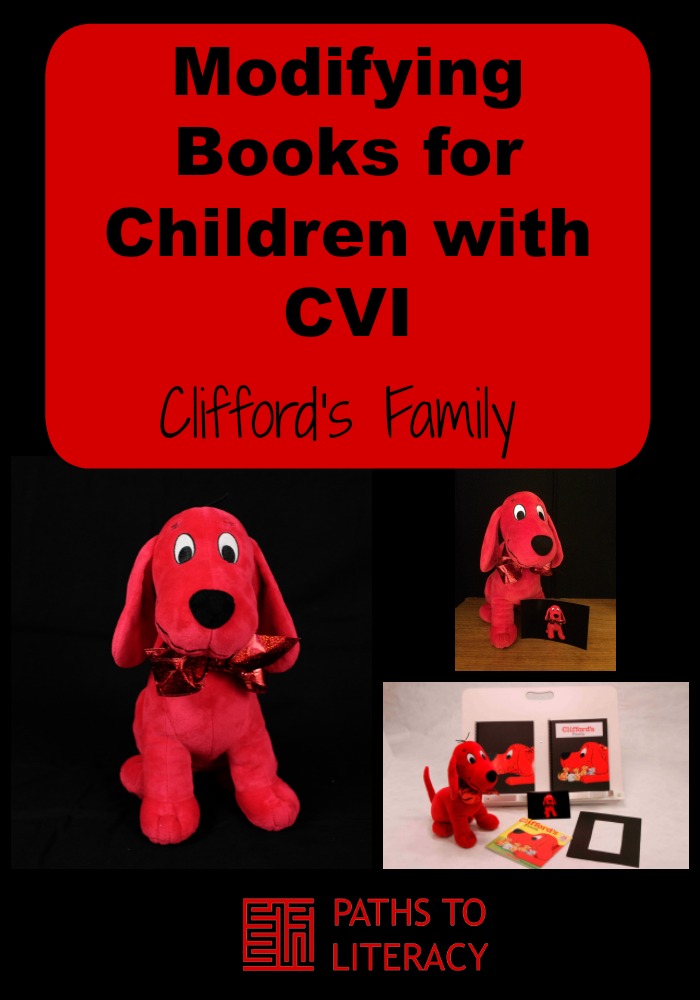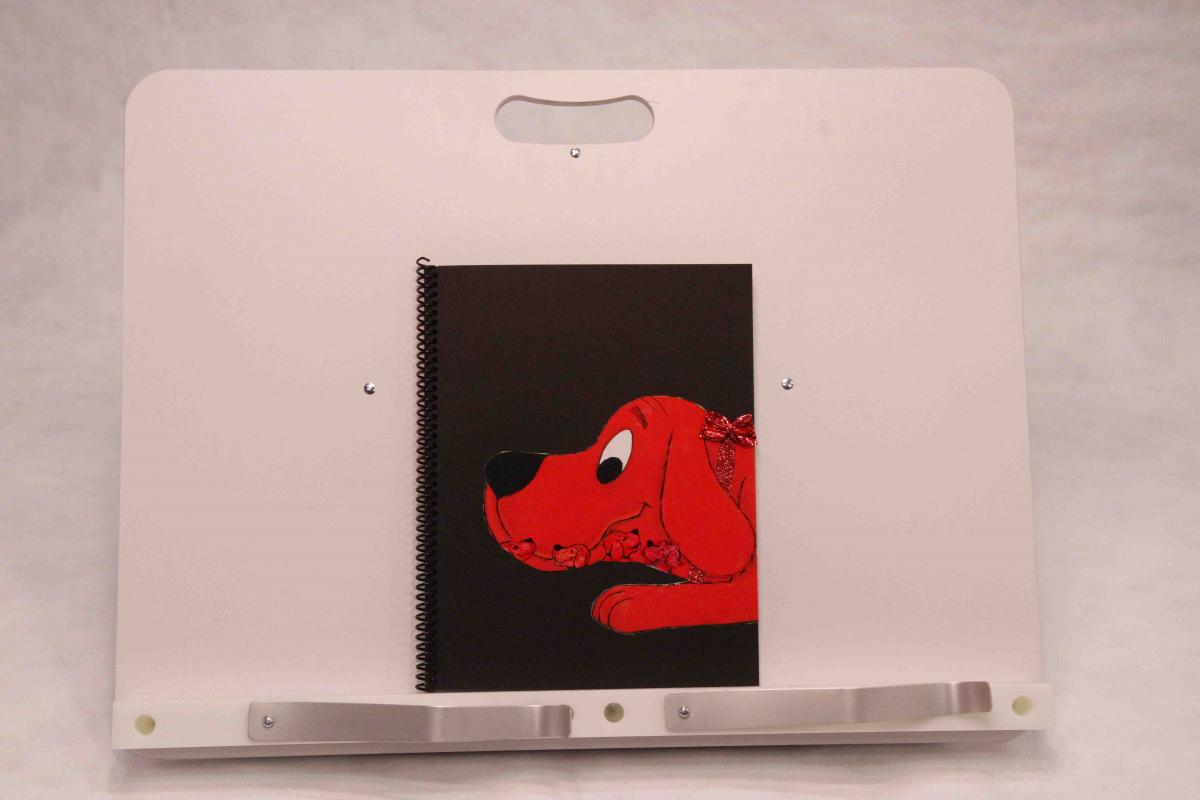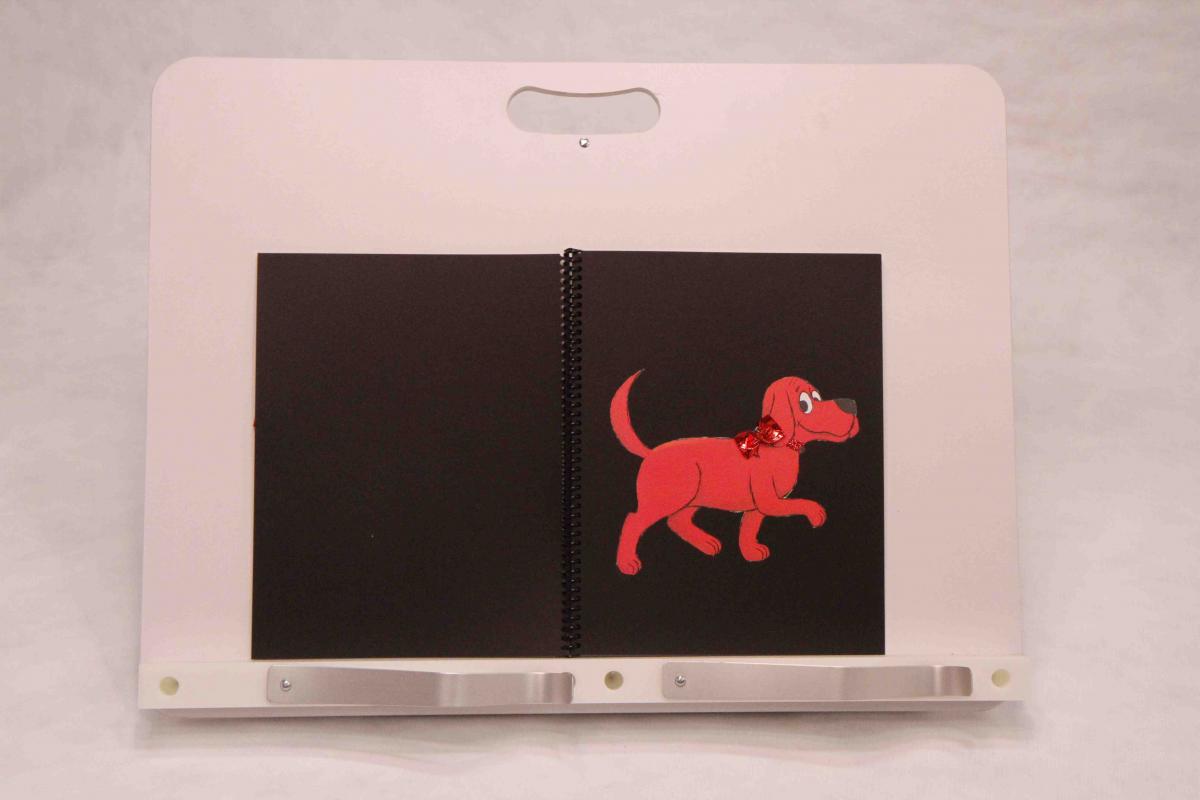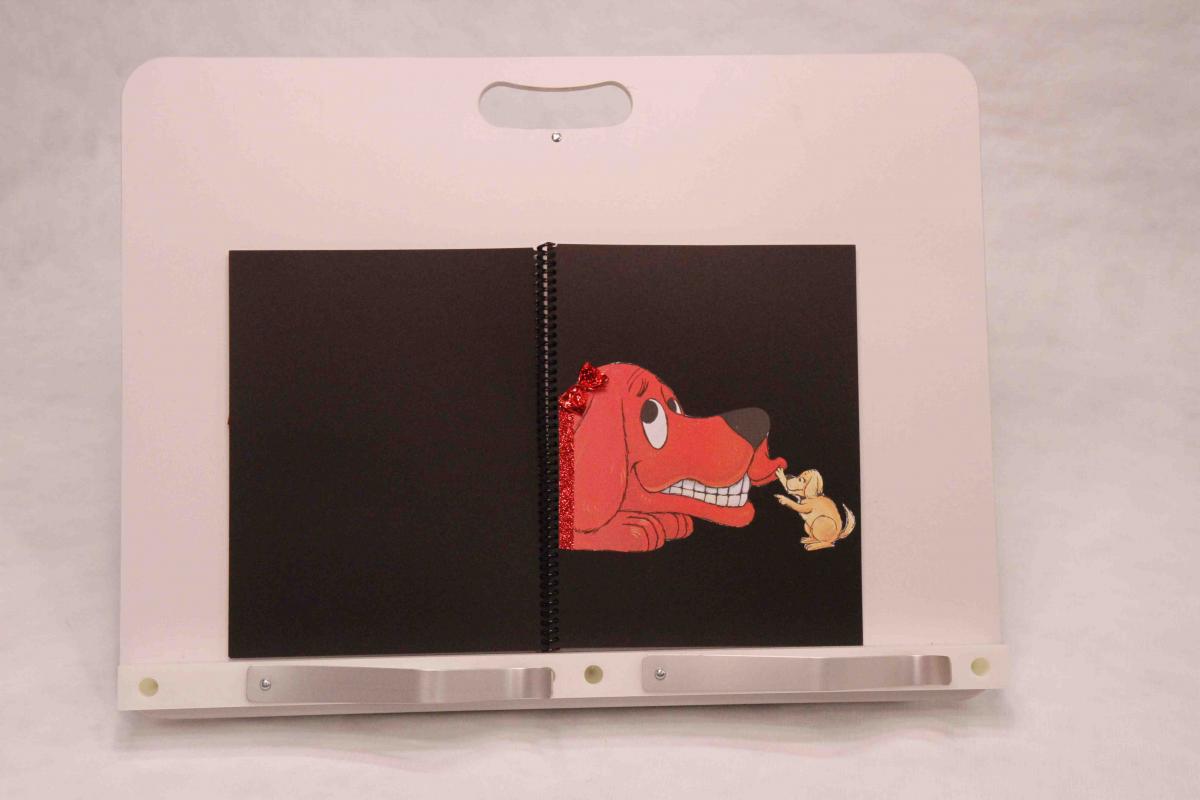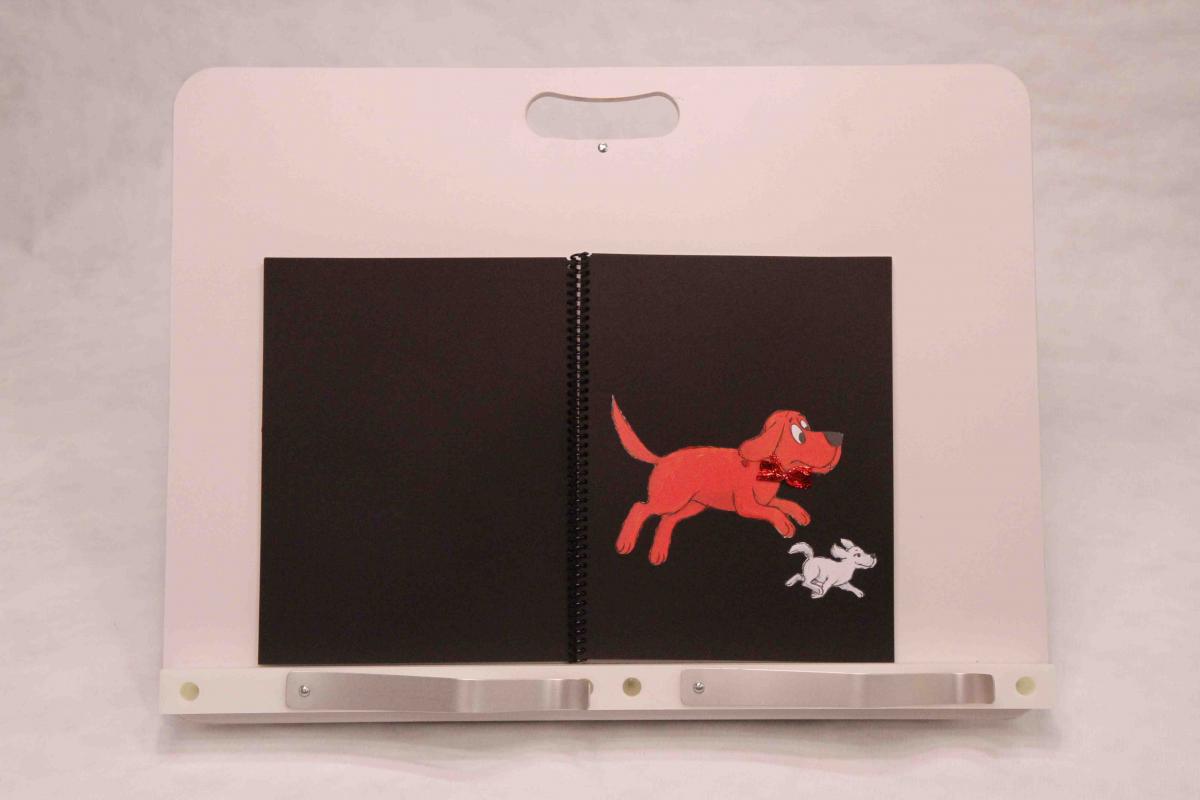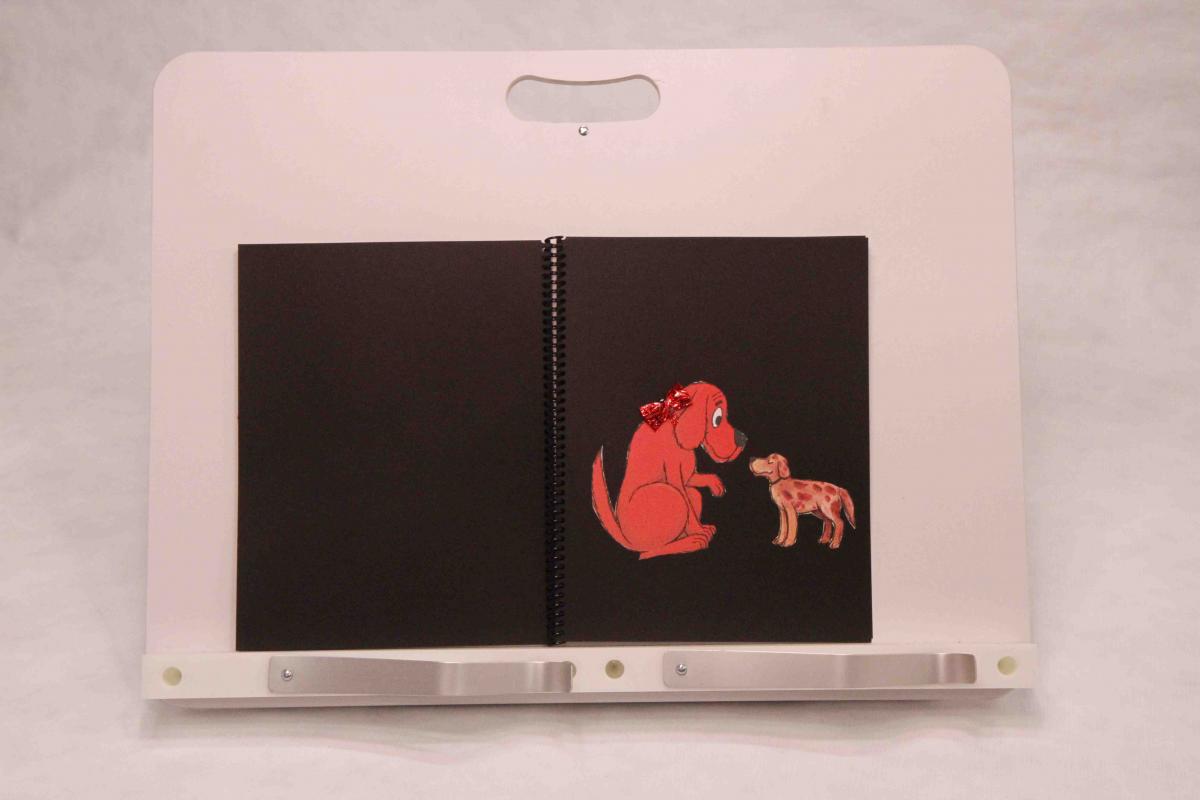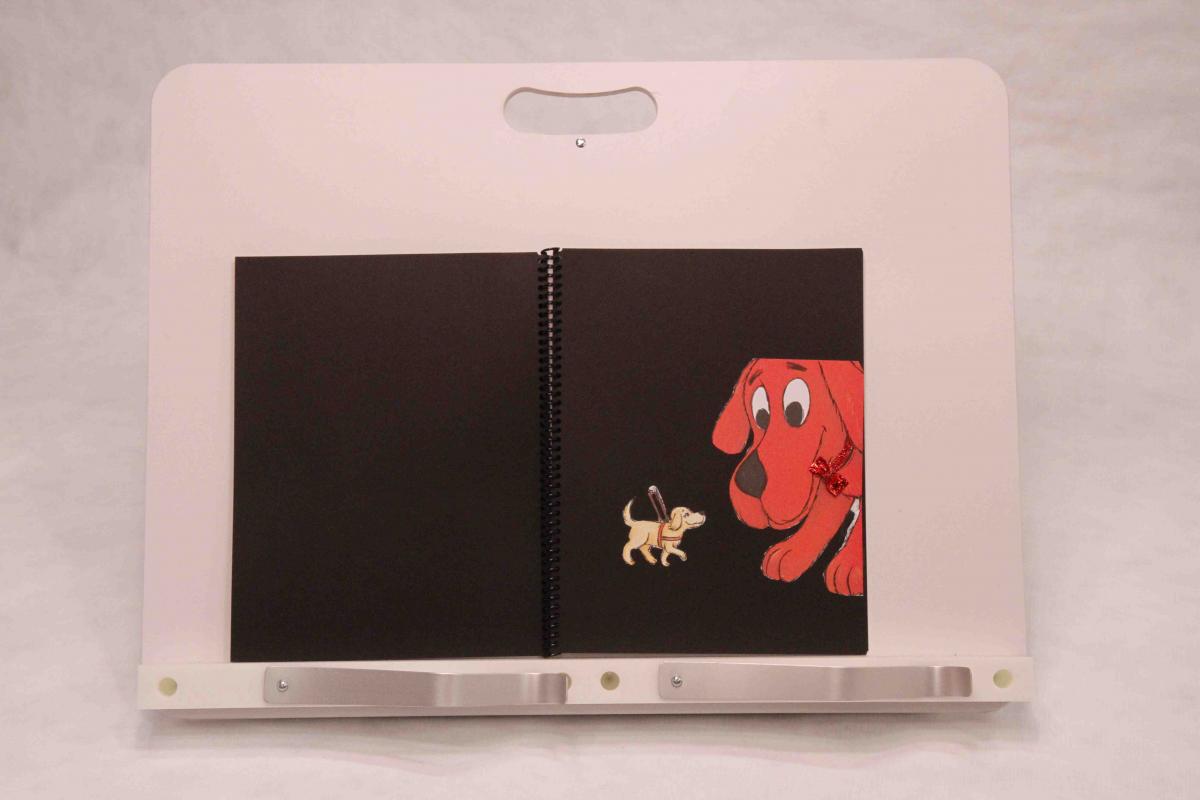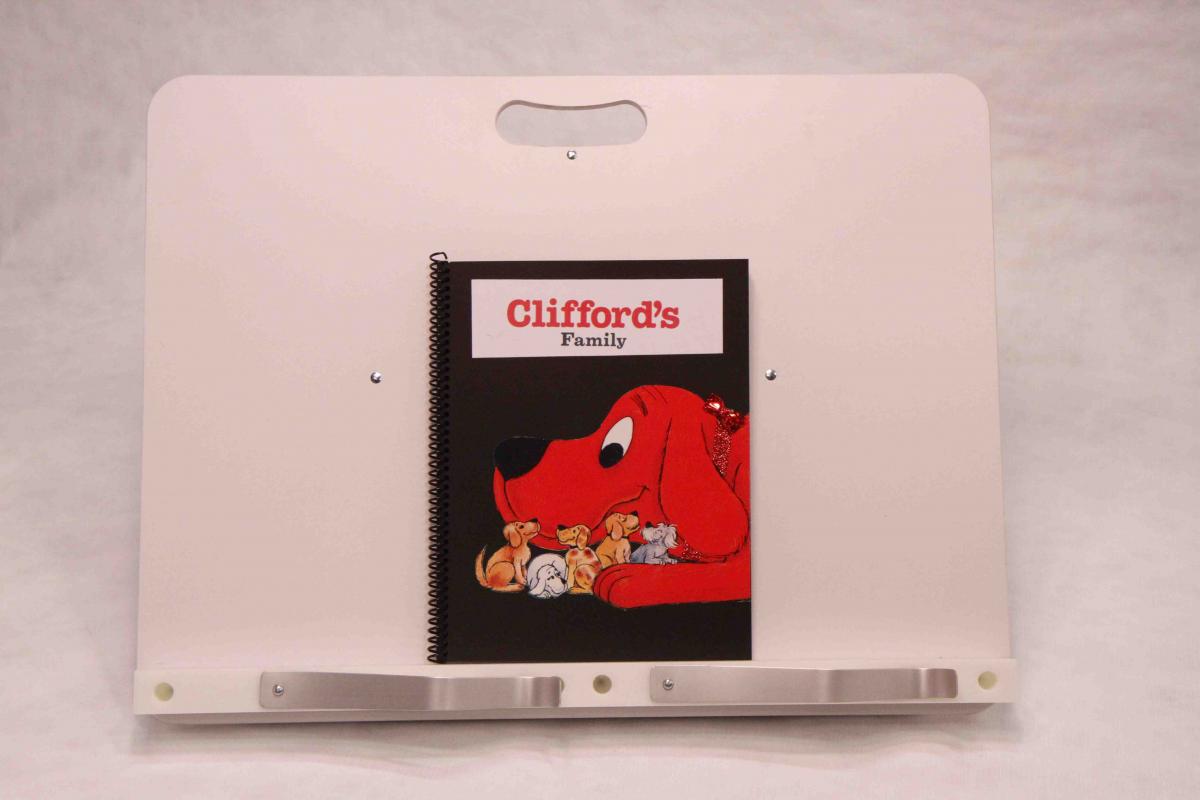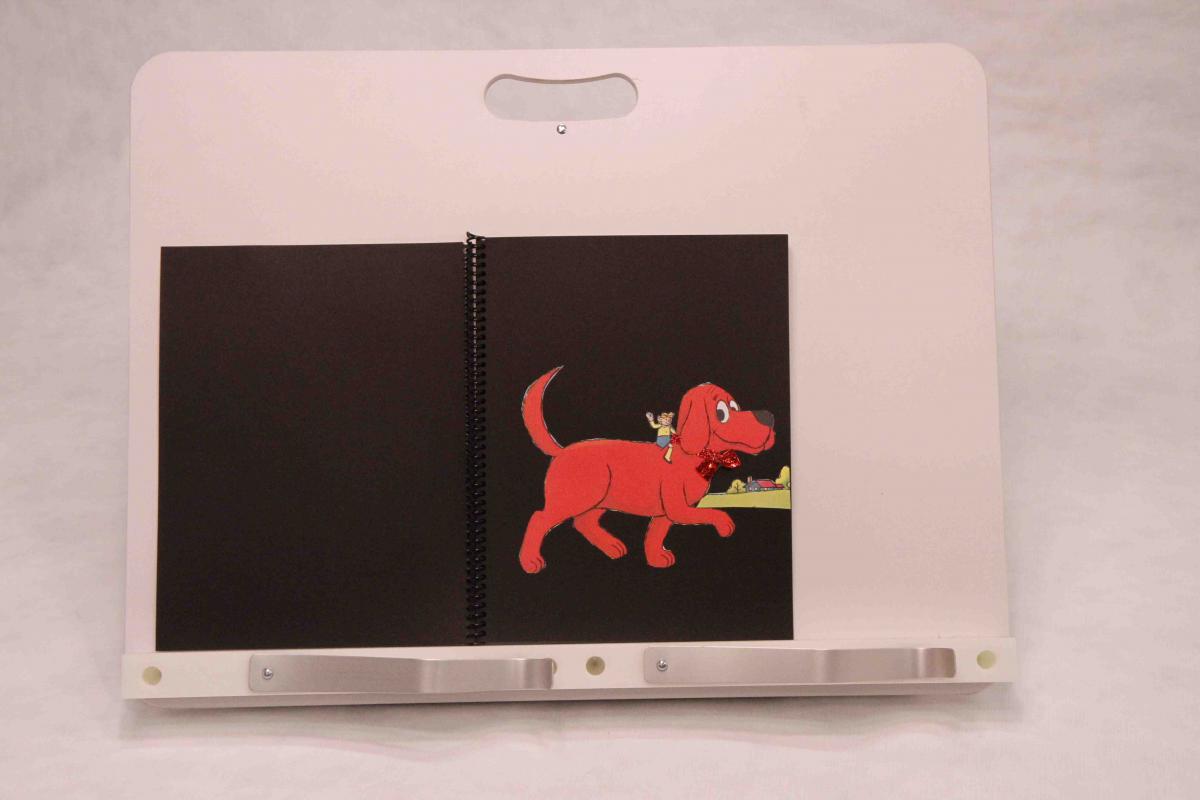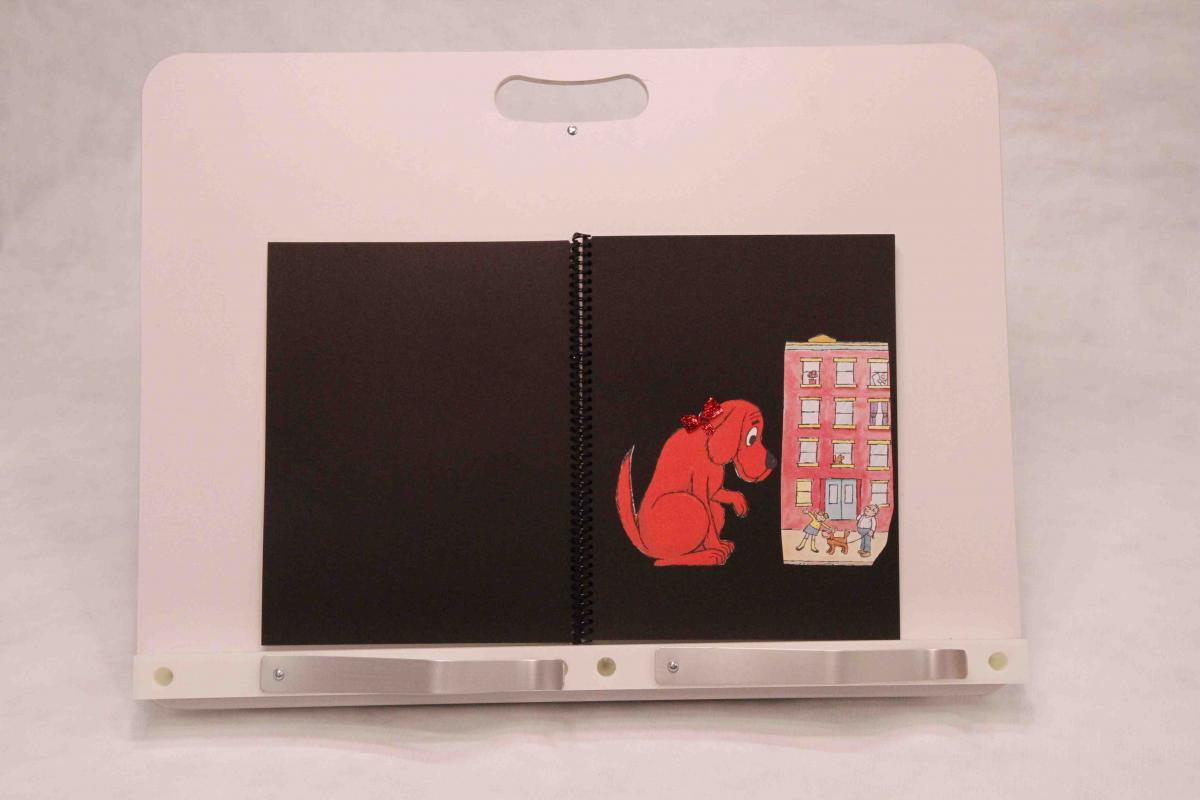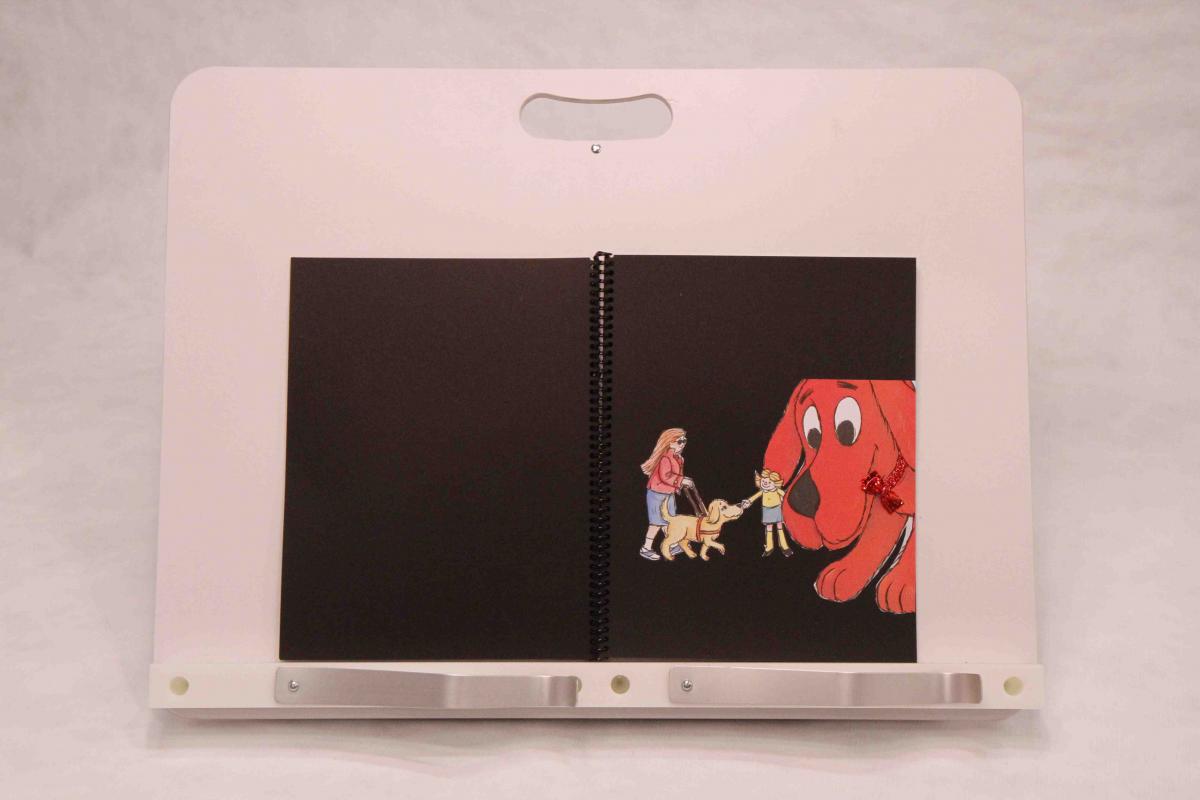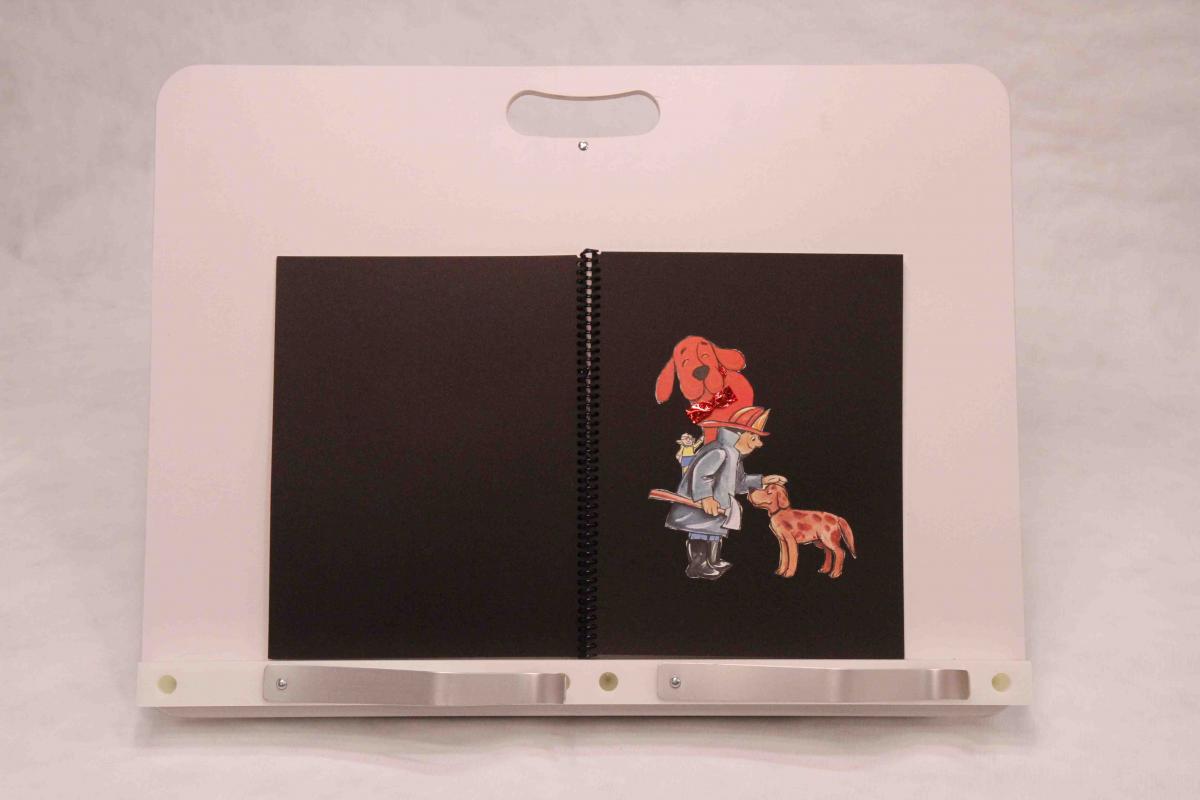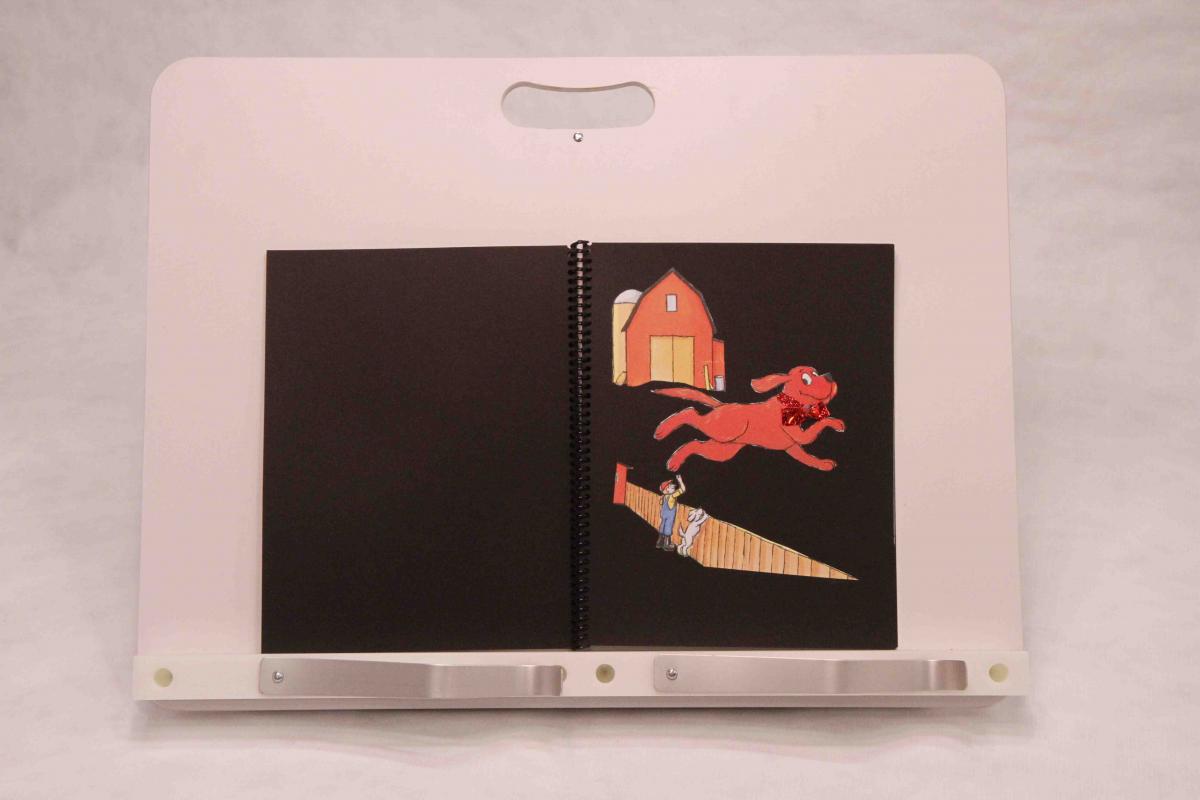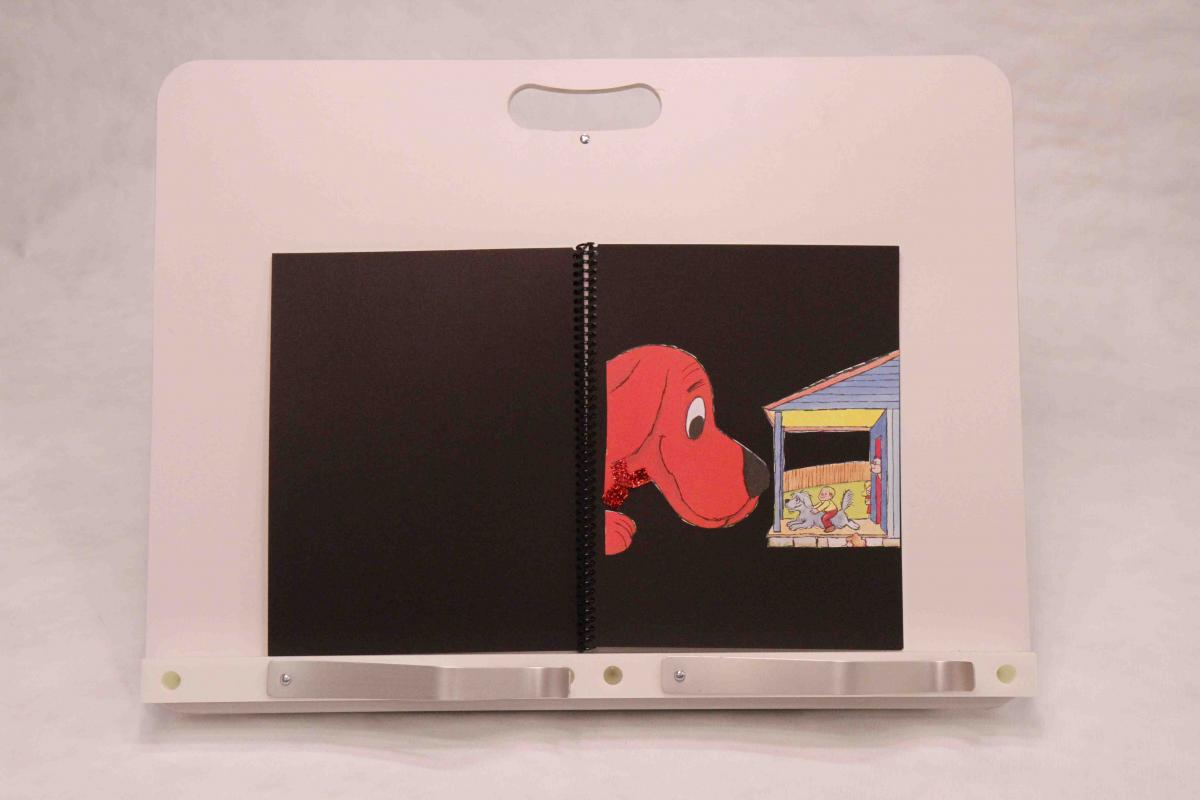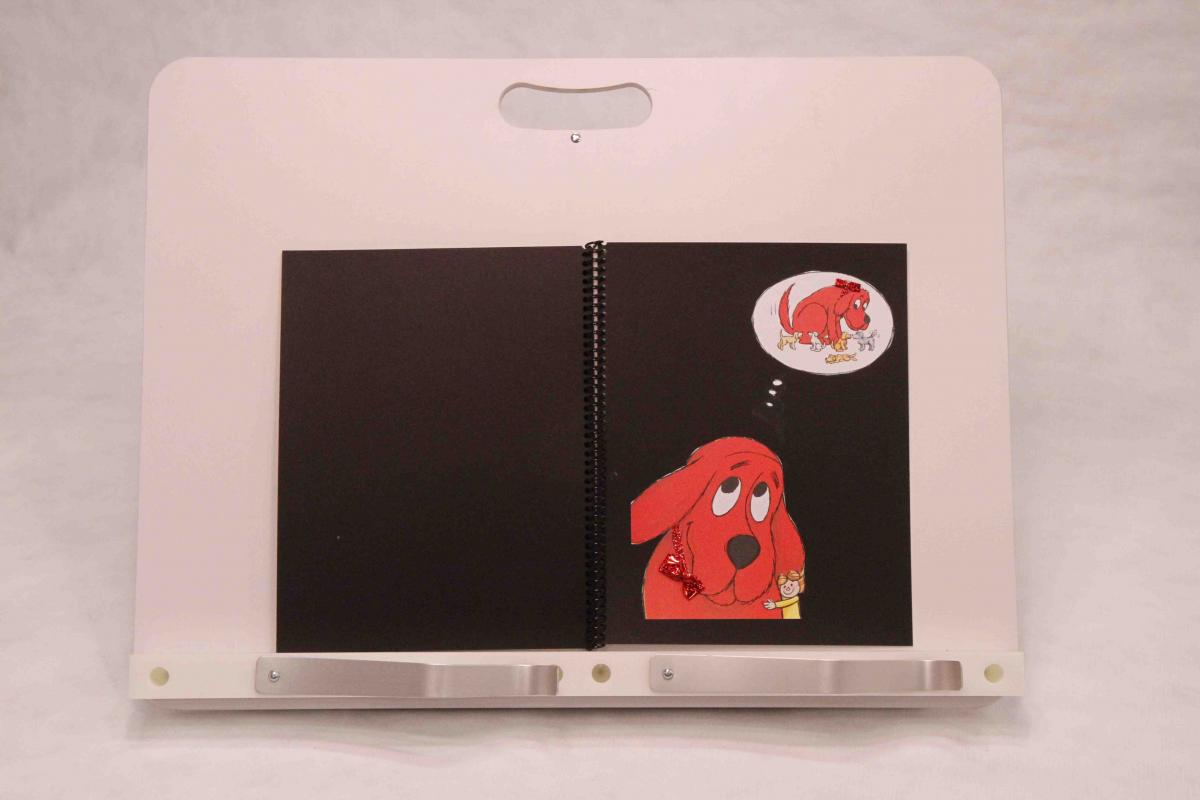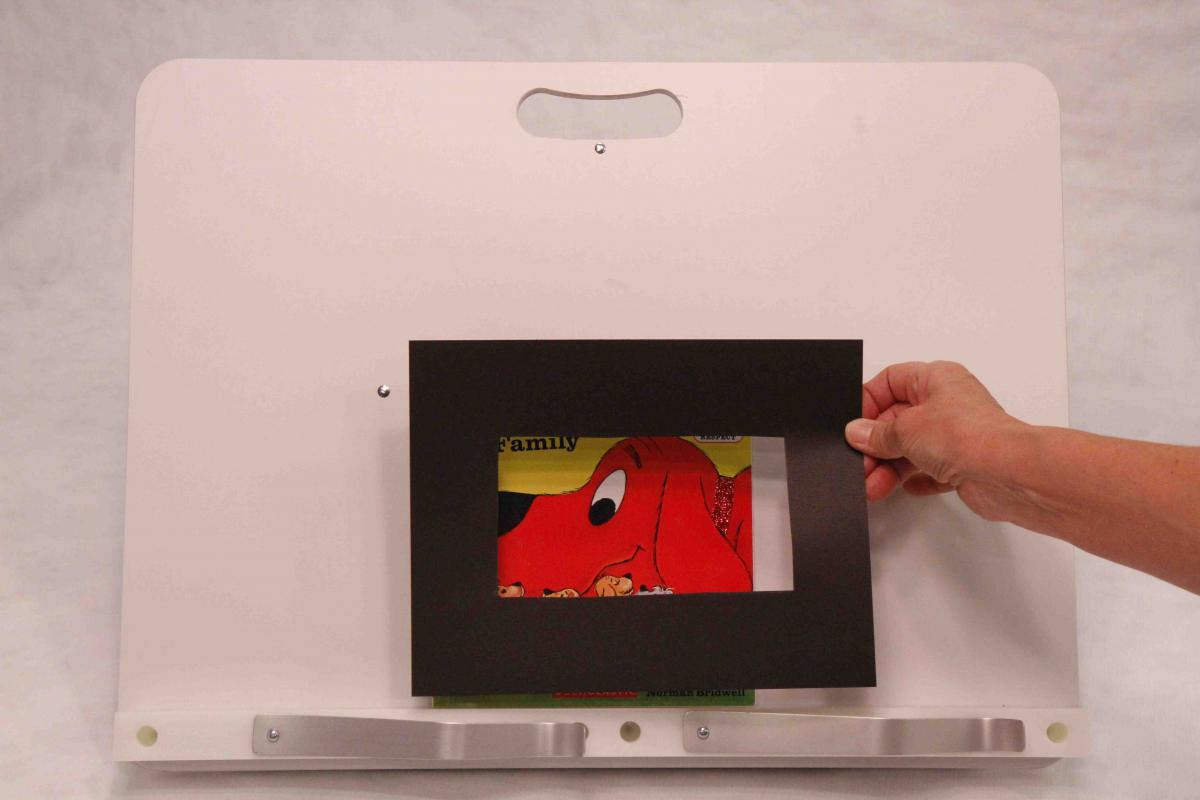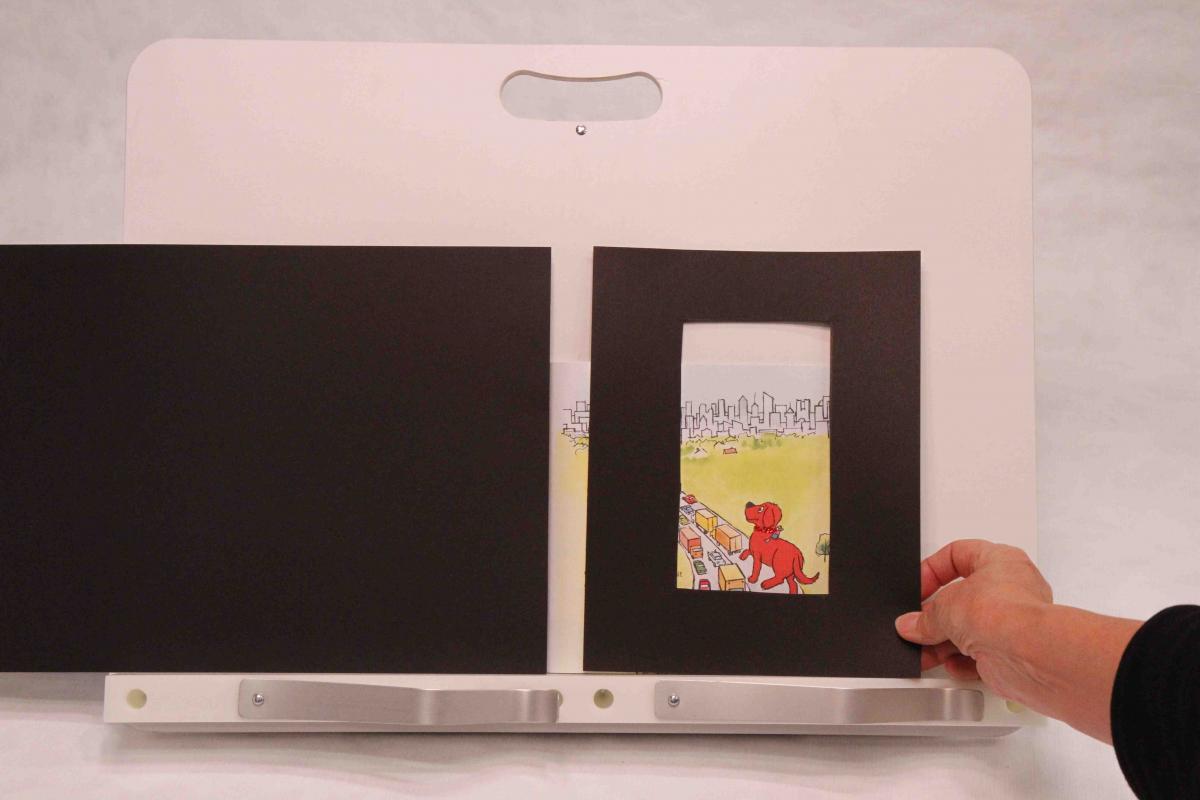Clifford's Family: Modified Version
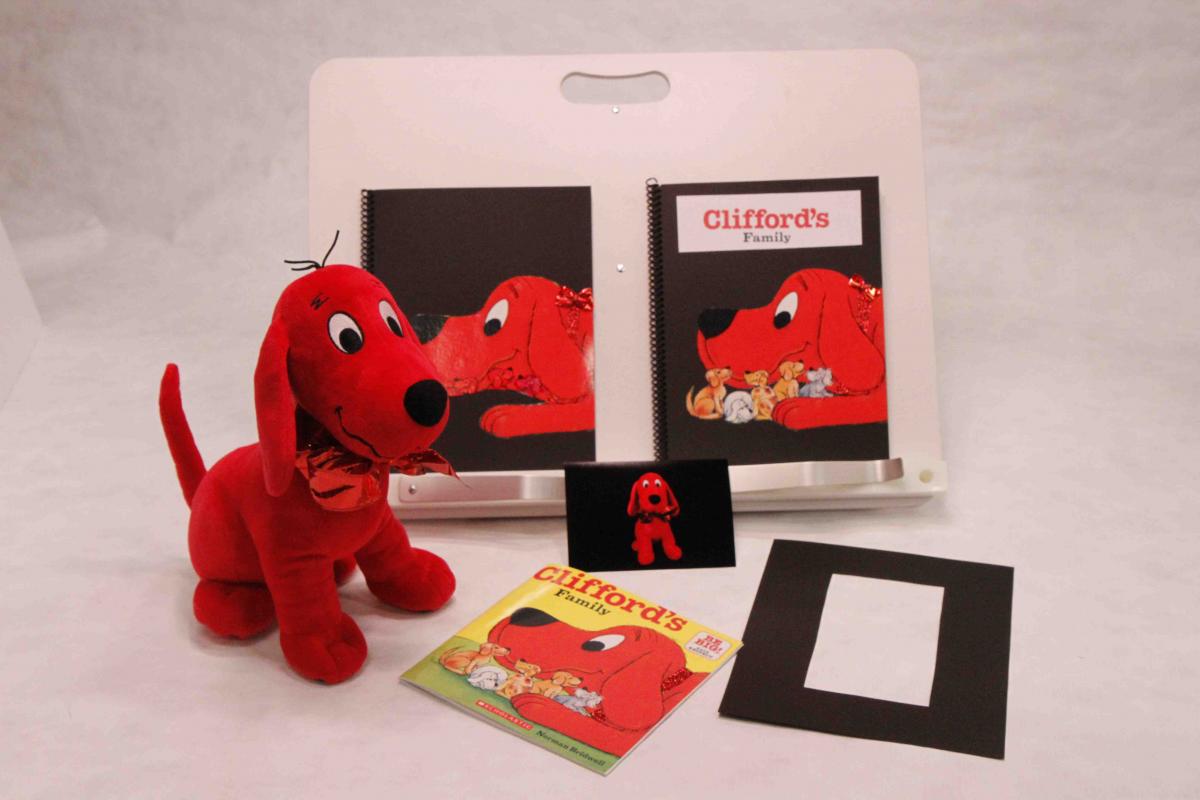
This book is one of the examples shared showing how to adapt books for children with cortical visual impairment (CVI). Please begin by reading the introductory information:
- Literacy for Children with CVI: Overview and Implications for Different Phases
- Guidelines for Modifying Books for Students in Phases I, II, and III
- Adapting Books and Literacy for Students with CVI
- General Materials Used to Adapt Books for Children with CVI
I often advise parents to plan ahead as they work with their child to encourage more consistent and efficient use of vision. For example, if the child has a specific familiar, favored target that he loves when he is just beginning to use vision in Phase I, I encourage parents to think about how that target might be used later, especially when introducing literacy.
One of my students loved his bright, red Clifford stuffed dog and had several of these stuffed dogs in different sizes. He alerted well to red and we often used Clifford as a “warm up” target to get him looking and using vision. We decided early on to tie a red, mylar ribbon around Clifford’s neck (a collar), and often encouraged this student to touch and crinkle the ribbon (the use of the ribbon was the “planning ahead” part). We often used descriptive words for the ribbon, which was one of the salient features for this child’s Clifford.
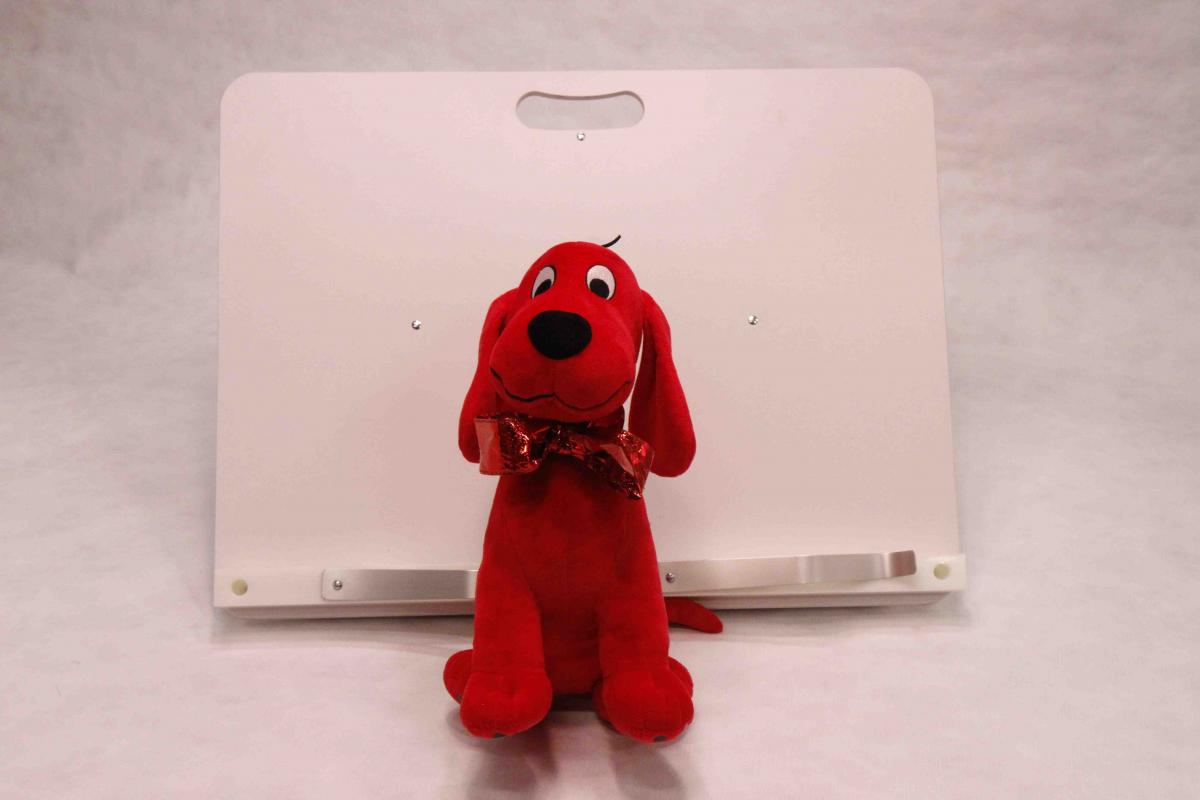
As this student made progress along the CVI Range, we began to use color photos of his favorite targets, including one of Clifford.
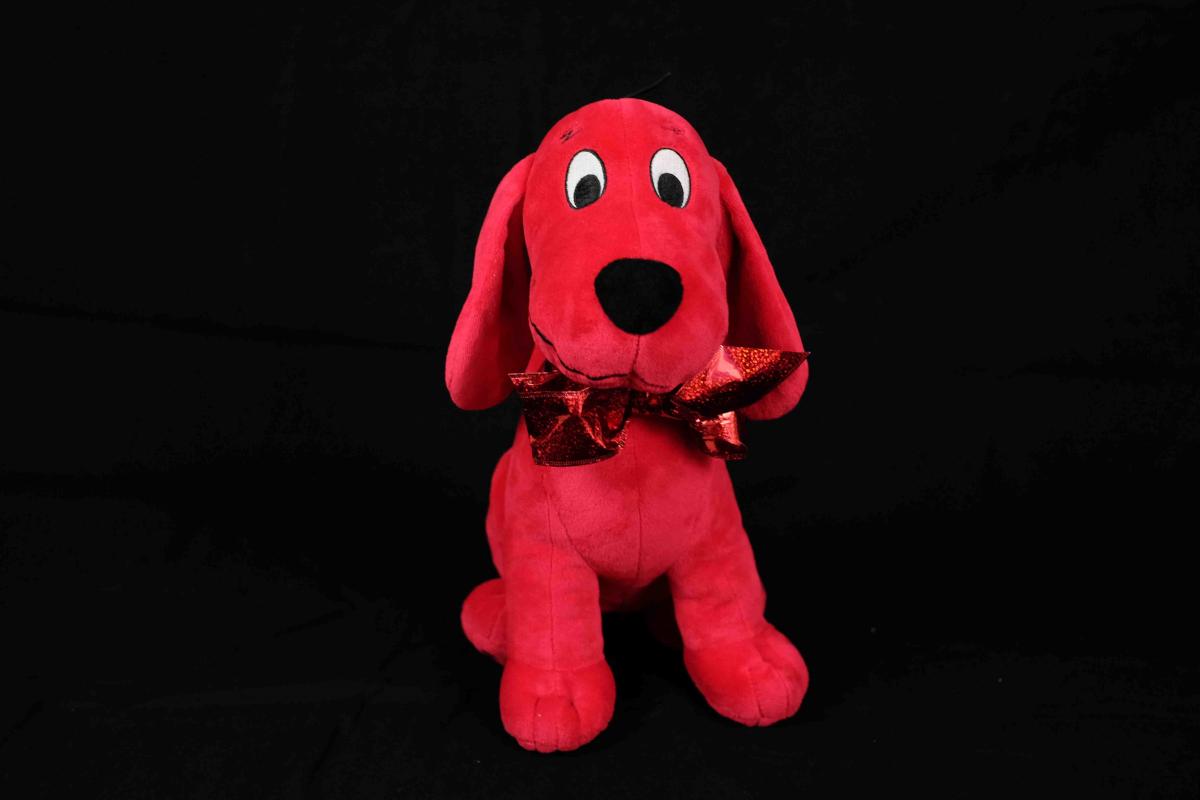
After this student could demonstrate an understanding that the 2D photo of Clifford represented his favorite toy, he was visually functioning in Phase III. At that point, we purchased 3 of the same book about Clifford (“Clifford’s Family”).
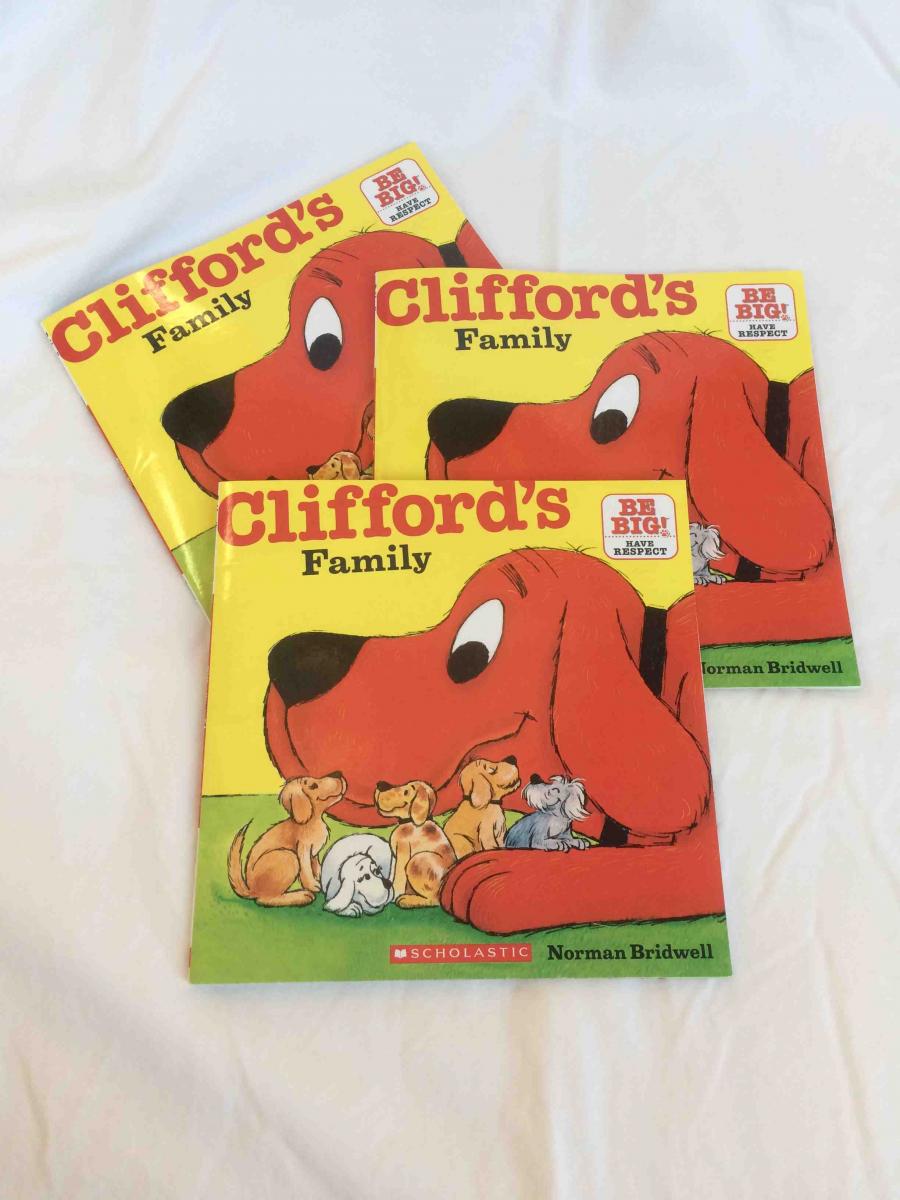
I then took one of the 3 books, and started to cut it apart, mainly focusing on cutting out Clifford only. I created a book about Clifford doing various things with little or no extra details. In each picture of Clifford, I glued on a red, mylar, ribbon-like “collar”, using the same ribbon that my student was familiar with.
As we showed him each page of this Level 1 book, he was encouraged to look for the red mylar “collar” on Clifford.
Once he became consistent at visually locating the red mylar “collar” and Clifford, we moved on to the Level 2 book of this series. For Level 2, we cut up the second book we purchased and not only cut out all the pictures of Clifford, but we also included more detail on each page along with Clifford. As with the Level 1 book, in Level 2 we also used additional red mylar ribbon as a “collar” on each of the Clifford dogs.
After much practice, my student became very good at visually locating Clifford on each page (in part because of the red mylar ribbon/collar) and could also view these Level 2 pages at the same time the story was being told. At this point, we finally introduced the third (original) book. This one was not cut up!
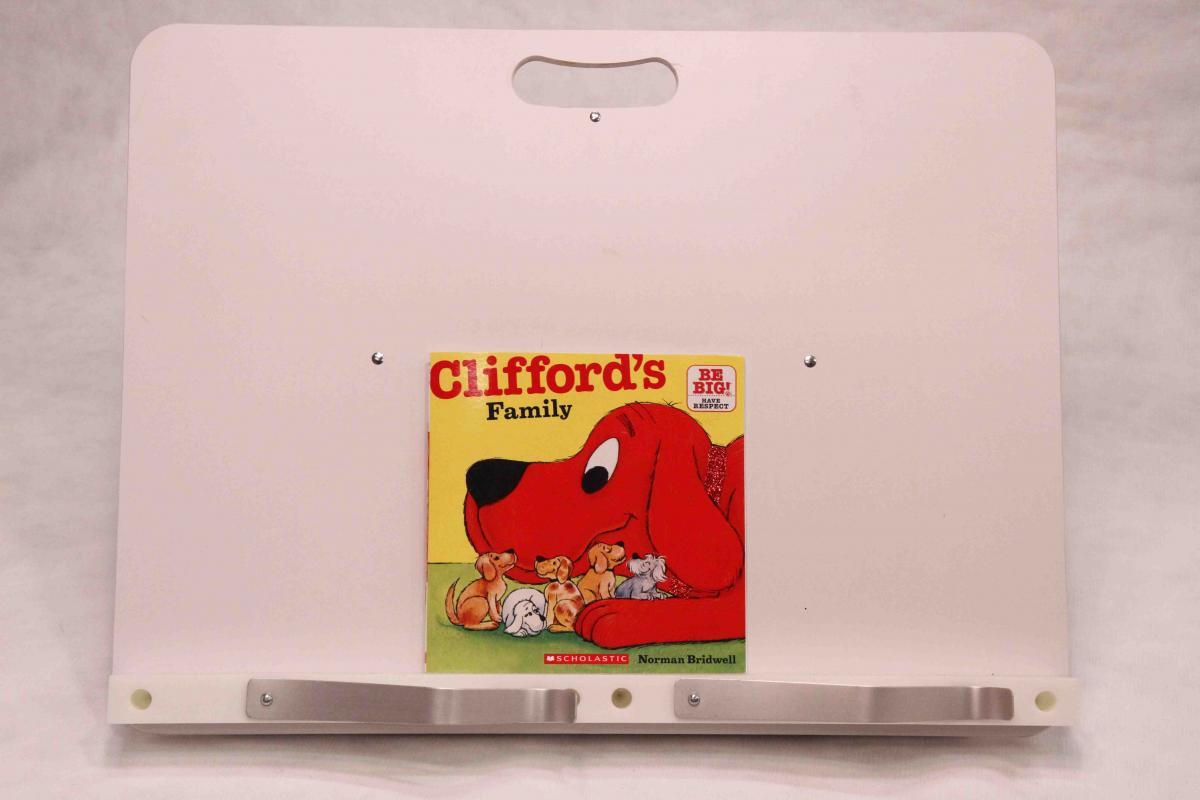
When we started using the original book, there was still too much “visual clutter” on each page. We found that if we used a Window Marker, made from heavy, black tag board, it helped the student to visually locate Clifford.
Blocking Techniques were also used.
As the student’s use of vision improved and his ability to scan and locate Clifford became more consistent, the Window Markers and Blocking Materials were minimized and then entirely withdrawn.
Examples of Books
The following are other examples of books I have created for students with CVI:
- Where is the Red Gift Bag?
- Getting Ready for School (CVI-friendly pegboard book)
- One Yellow Slinky Bouncing Up and Down
- Three Silver Pie Tins and One Red Puff
- Three Bright Red Pom Poms Lined Up in a Row
- Five Little Lights
- My Favorite Things
For more ideas from Diane Sheline, visit Strategy to See.
